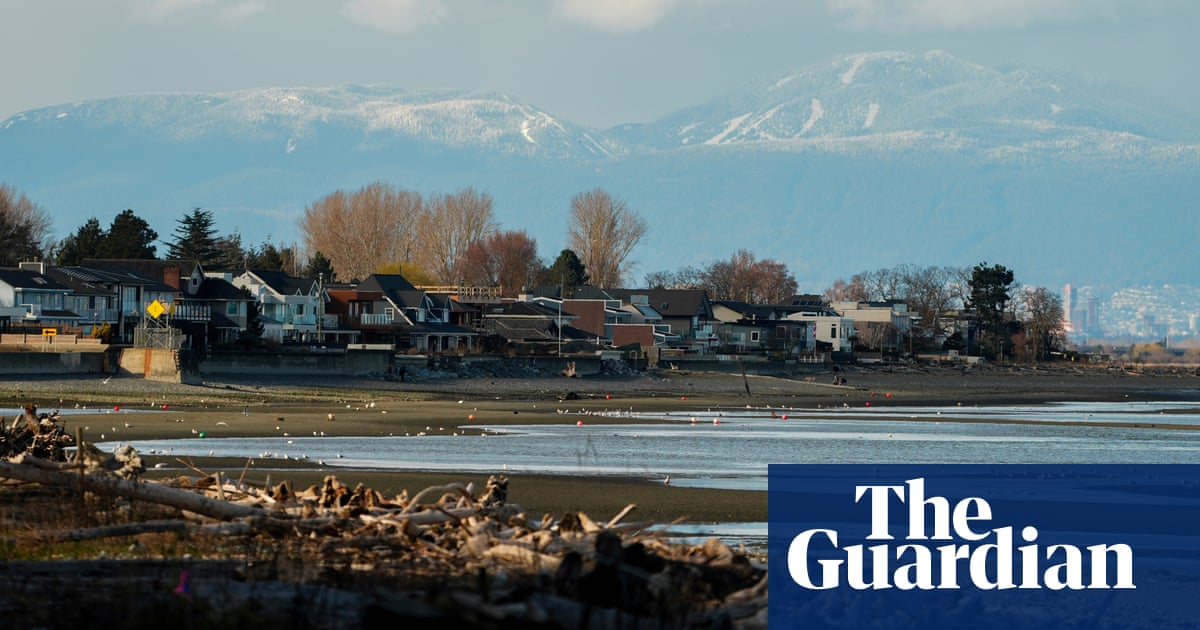Point Roberts, Washington, is about as Canadian as a US town can get. Littered with streets named afterCanada’s provinces, its gas stations sell by the litre and about half of its 1,000 residents hold dual citizenship. Its sole grocery store, the aptly named International Marketplace, keeps both American and Canadian dollars stocked in its till.
That till hasn’t been getting much use in recent months. Ali Hayton, the International Marketplace’s owner, estimates business is down by 30% amid an unprecedented dip in Canadian visitors. “We’re hanging on by a thread,” she said.
Regions dotting the 49th parallel are feeling a chill from their formerly friendly neighbors as tensions rise between the US and Canada. TheTrump administration’s tariffsand threats to make Canada its 51st state have spurred a boycott of all things American, devastating areas that depend on northern tourists for their livelihood.
Other US border towns retain the advantage of drawing in business from local Americans. But to reach Point Roberts, located south of Vancouver, you must first travel 25 miles throughCanada.
“It’s unfortunate that our little town is somewhat helpless,” said Wayne Lyle, president of the Point Roberts Chamber of Commerce.
Some businesses in the pene-exclave have already shuttered their doors, while others are relocating to Canada. Across the community, reduced hours are creeping in. Locals worry that if the government doesn’t step in to help, Point Roberts as they know it could cease to exist.
Created by the 1846 Oregon Treaty, the five-sq-mile town borders Tsawwassen, British Columbia, and is otherwise surrounded by the Pacific Ocean. It has long had a synergistic relationship with Canadians, who own 70% of its homes and fuel its economy through summer tourism.
Tamra Hansen, the owner of the local Saltwater Cafe and Pier restaurant, noticed something was awry shortly afterDonald Trumpenacted 25% tariffs on Canadian goods in February. “It was a lot slower immediately,” said Hansen, whose sales plummeted by 55%.
It isn’t just levies causing Canadians to forego border crossings. Trump’s hostile rhetoric towards Canada and his administration’s hardline immigration policies have exacerbated frictions that could outlast any tariffs. The number of travelers crossing into Point Roberts this March decreased by 25% compared to last year, according to data from US Customs and Border Protection, with that decline deepening to 30% in April.
“They’re really upset – and so they should be. Their sovereignty is at stake,” said Hansen of the messages she’s received from customers. “The problem is, 90% of my business is dependent on Canadian people.”
The restaurateur claims the hit to sales is even more dire than during the Covid-19 pandemic, which businesses in Point Roberts were just beginning to recover from. Jobs will be lost across the community if nothing changes, according to Hansen, who said she will have to make some “hard decisions” unless she receives support.
In some cases, business owners have already been forced to make such decisions. Point to Point Parcel, a 24-year-old parcel store, shut down permanently in April and cited Trump’s tariffs as the reason.
A few roads away is a museum dedicated to vintage rubber ducks. Due to a sharp decline in foot traffic and sales, the Rubber Duck Museum will relocate over the border this summer to Tsawwassen. After tariffs hit Canada, maintaining the business in Point Roberts “became immediately unsustainable”, said co-owner Krystal King.
The museum’s challenges were compounded by levies on China that tripled the price of the ducks sold at its gift shop. “Our customer base doesn’t want to come here any more, and our products have gone through the roof,” said King.
In an attempt to lure back customers, the International Marketplace, which has cut back on deliveries and hours, is striking vendor deals and running special promotions. Over the Easter weekend, it saw an uptick in sales after temporarily boosting the exchange rate for the Canadian dollar to 80 cents instead of 72 cents.
Brian Calder, a resident of Point Roberts for more than four decades, has begun selling bumper stickers reading “Point Roberts supports Canada” to repair the town’s image. Earlier this year, he also wrote a letter to the British Columbia premier, David Eby, urging for an exemption from Canada’s retaliatory tariffs. Point Roberts warrants a unique solution due to its geographic quirks, according to Calder, who is appealing for help on a “humanitarian basis” to ensure its survival.
While conceding that US border towns are struggling, Diana Gibson, British Columbia’s minister of jobs, economic development and innovation, applauded British Columbians vacationing locally in a show of support for the province. “Many of us have friends, family and colleagues in the United States – but this is an unprecedented time,” said Gibson in an emailed statement.
Hayton, who last month attended a roundtable with Senator Patty Murray to discuss the fate of Washington’s border towns, is worried Point Roberts could become a food desert if her grocery store closes. It almost got to that point during Covid before she received government assistance such as small business loans and employee retention tax credits. This time around, there are no such programs.
“I keep thinking, ‘OK, this is going to get better,’” said Hayton. “But if there comes a time where it’s paying my employees or paying for a truckload of food, I’m going to pay my employees first.”
